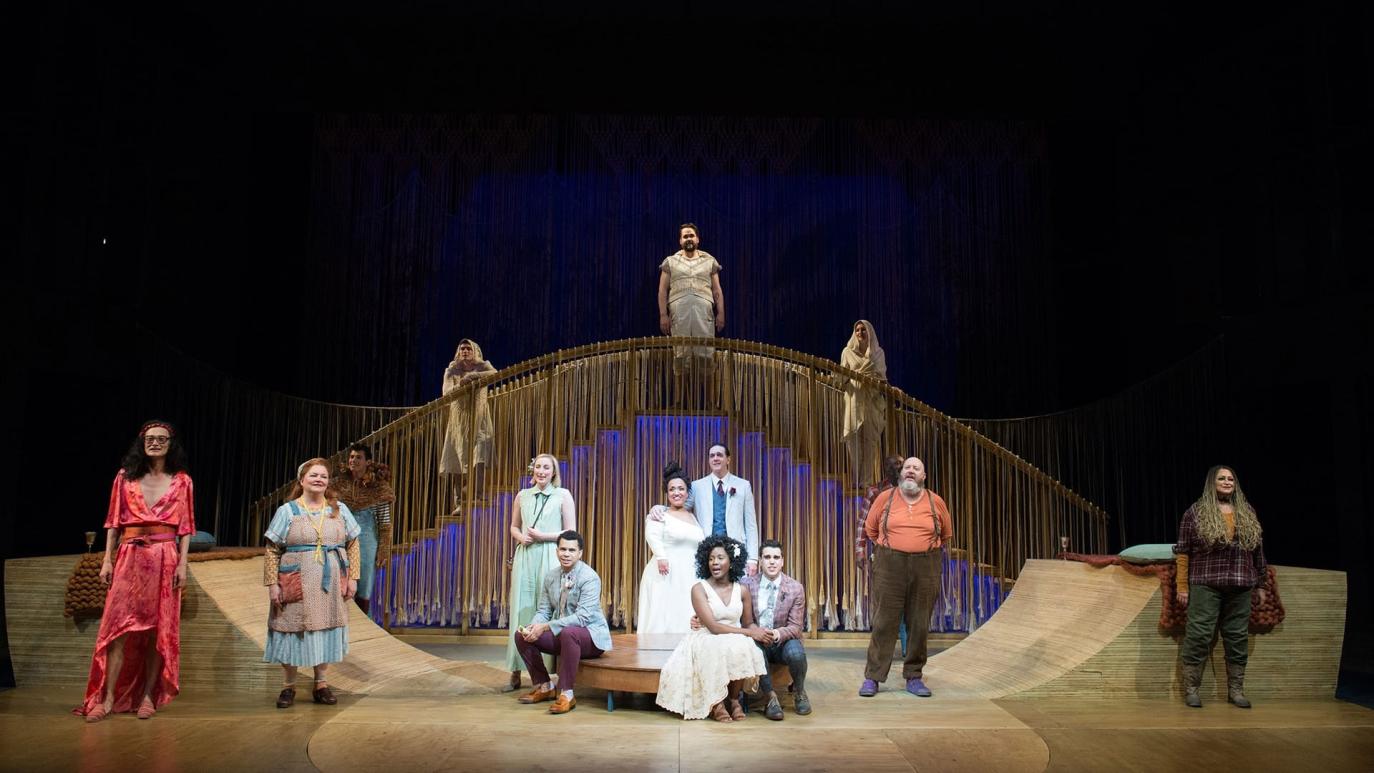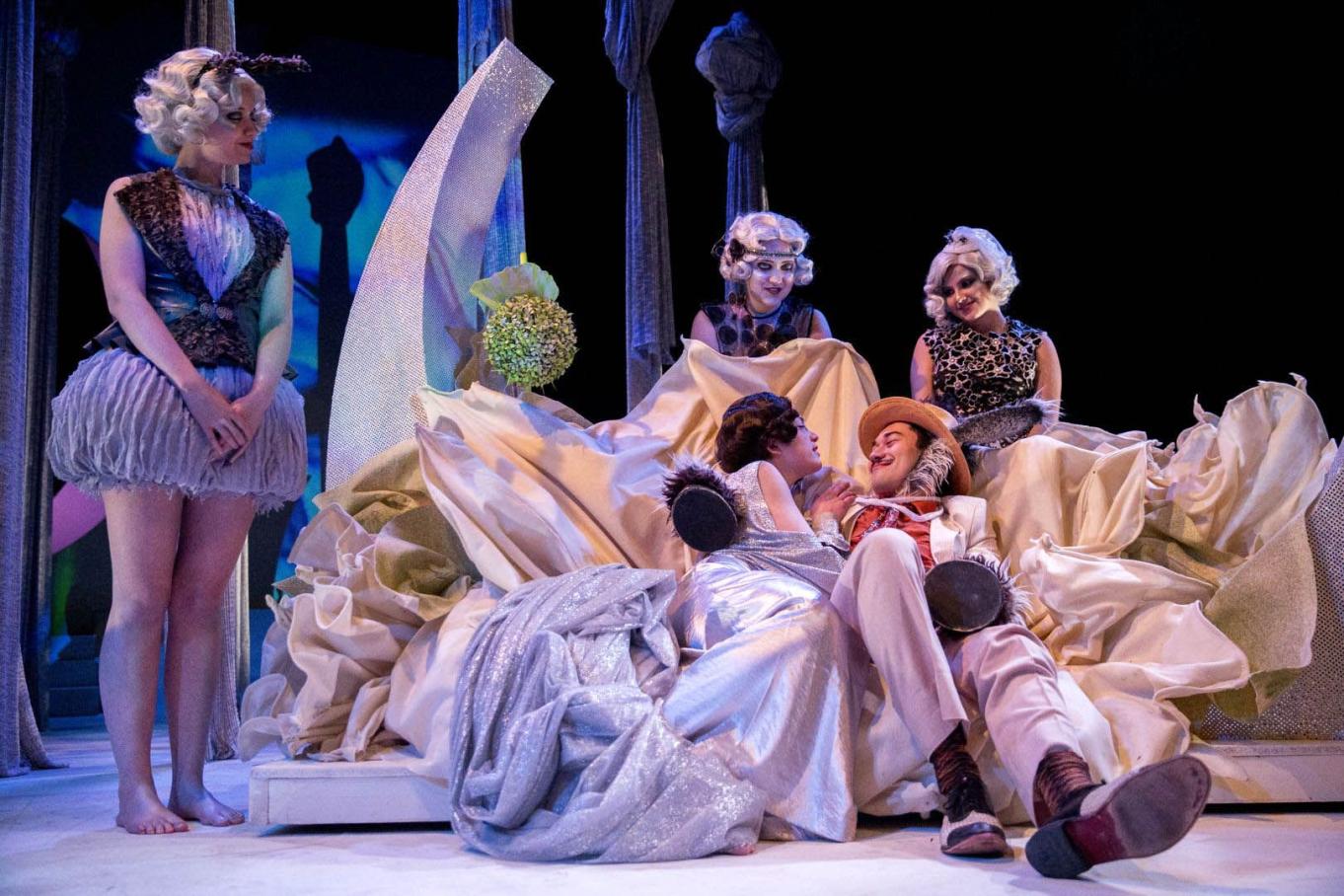How Does Shakespeare Use Irony and Wordplay in A Midsummer Night's Dream?
William Shakespeare's A Midsummer Night's Dream is a play filled with irony and wordplay, two literary devices that add humor, depth, and complexity to the story. Irony creates unexpected and often humorous situations, while wordplay adds wit and cleverness to the dialogue.

Irony and wordplay are significant in literary analysis because they allow readers to explore the deeper meanings and themes of a work. They can also help readers to understand the characters' motivations and relationships.
Types Of Irony In A Midsummer Night's Dream
There are three main types of irony in A Midsummer Night's Dream: verbal irony, situational irony, and dramatic irony.
Verbal Irony
Verbal irony occurs when a character says one thing but means another. For example, Demetrius declares his love for Helena after rejecting her earlier. This is ironic because the audience knows that Demetrius does not truly love Helena.

Another example of verbal irony is Titania's infatuation with Bottom, the transformed weaver. Titania is a fairy queen, and Bottom is a commoner. Their relationship is therefore highly unlikely, and the audience finds it humorous.
Situational Irony
Situational irony occurs when the outcome of a situation is the opposite of what was expected. For example, the love triangle between Demetrius, Helena, and Hermia is a classic example of situational irony. Demetrius loves Helena, but Helena loves Demetrius. Hermia loves Lysander, but Lysander loves Hermia. This creates a tangled web of relationships that is both humorous and frustrating.
Another example of situational irony is the transformation of Bottom into a donkey. Bottom is a weaver, and he is not used to being in the woods. When he is transformed into a donkey, he is completely out of his element. This is ironic because it shows how easily things can change in the world of A Midsummer Night's Dream.
Dramatic Irony
Dramatic irony occurs when the audience knows more about the situation than the characters. For example, the audience is aware of Puck's mischievous plan to cause trouble between Demetrius and Helena. The characters, however, are not aware of Puck's plan. This creates a sense of suspense and anticipation for the audience.
Another example of dramatic irony is the audience's knowledge of the impending wedding between Theseus and Hippolyta. The characters are not aware that the wedding is about to be interrupted by a group of fairies. This creates a sense of excitement and wonder for the audience.
Wordplay In A Midsummer Night's Dream
Shakespeare uses a variety of wordplay in A Midsummer Night's Dream, including puns, metaphors, and similes.
Puns
Puns are a play on words that exploits the different meanings of a word or phrase. For example, Puck says, "I could munch your good will." This is a pun on the word "munch," which can mean either "to eat" or "to chew." Puck is saying that he could eat Helena's good will, but he is also saying that he could chew on it. This creates a humorous effect.
Another example of a pun is Bottom's line, "I am a man as other men are." This is a pun on the word "man," which can mean either "a human being" or "a male person." Bottom is saying that he is a human being, but he is also saying that he is a male person. This creates a humorous effect because it is a play on words that is both true and false.
Metaphors
Metaphors are figures of speech that compare two unlike things. For example, Helena says, "Love looks not with the eyes, but with the mind." This is a metaphor because it compares love to a person who is looking at something. The metaphor suggests that love is not based on physical appearance, but on what is inside a person.
Another example of a metaphor is Lysander's line, "The course of true love never did run smooth." This is a metaphor because it compares the course of true love to a river. The metaphor suggests that the course of true love is not easy, but that it is worth pursuing.
Similes
Similes are figures of speech that compare two unlike things using "like" or "as." For example, Theseus says, "My tongue-tied Muse in manners holds her still, While comments of your praise, richly compiled, Reserve their character with golden quill." This is a simile because it compares the Muse to a person who is tongue-tied. The simile suggests that the Muse is unable to speak because she is overwhelmed by the praise that Theseus has given her.
Another example of a simile is Helena's line, "As true as truest horse, that yet would never tire." This is a simile because it compares Helena to a horse. The simile suggests that Helena is as true and faithful as a horse that would never tire.
The Significance Of Irony And Wordplay In A Midsummer Night's Dream
Irony and wordplay are essential to the meaning and enjoyment of A Midsummer Night's Dream. They create humor, highlight the absurdity and irrationality of love, and explore the theme of mistaken identity.
Wordplay adds wit and cleverness to the dialogue, enhances the play's poetic and lyrical qualities, and reflects the play's dreamlike and fantastical atmosphere.
Conclusion
Irony and wordplay are two of the most important literary devices that Shakespeare uses in A Midsummer Night's Dream. They add humor, depth, and complexity to the story, and they help readers to understand the characters' motivations and relationships. Readers who are interested in exploring the play further should pay close attention to the use of irony and wordplay.
YesNo

Leave a Reply